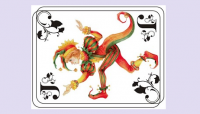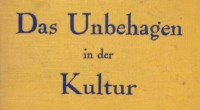Manya Steinkoler: When dumbness, or unbehagen before the master, becomes “Shakespeak,” comradery and joy in shared lack
“I taught Shakespeare’s Coriolanus this summer in an Introduction to Literature course at a community college. Students from Azerbaijan, Albania, Japan, Israel, Italy, Bangladesh, China, the Philippines, Mexico, the south Bronx, and even two heavily tattooed Iraq war veterans still in their twenties wrestled with this late Shakespearean masterpiece. The jumble of accents, cultural ideologies, life experiences, and even ages— one student was in her midsixties and going to college for the first time, one African American working mother of two was doing the same—would prove magical; a kind of nonmeaning and missed meaning that was always present and served paradoxically like a witch’s brew to buoy up the text, allowing the class to embark together on the journey of Shakespeare’s ravagin...Read More
David Lichtenstein on the formation of Das Unbehagen
“In late March 2012, about 30 psychoanalysts, psychoanalytic students, and candidates from several different institutions and affiliations in New York, a group composed for the most part of those who are nowadays referred to as early career professionals, gathered to talk about the contemporary state of psychoanalytic formation and training. They met under the signifier Unbehagen, a reference of course to Freud’s text Das Unbehagen in der Kultur (1930). But how should we take the meaning of this Unbehagen? When the essay was first being translated into English, Freud suggested to the translator, Joan Riviere, that it might be rendered as Man’s Discomfort in Civilization. But she settled on Civilization and its Discontents. The German dictionary Langensheidt simply suggests unease for...Read More
Das Unbehagen Founding Letter
Jamieson Webster and Michael Garfinkle The original ‘Unbehagen’ that led us to call this meeting stemmed from our experience of training at The New York Psychoanalytic, and getting involved in the politics of the American Psychoanalytic Association, and the International Psychoanalytic Association. These experiences produced a schism between our will to progress through the training to become credentialed psychoanalysts and the pleasure of psychoanalysis, the latter diminishing in the face of the training experience. As our discontent increased, we began speaking to many people from institutes across the city and elsewhere, as well as colleagues in clinical psychology doctoral programs, social work programs, and those wishing to be, or training as, lay analysts, and there seemed to be a ge...Read More







